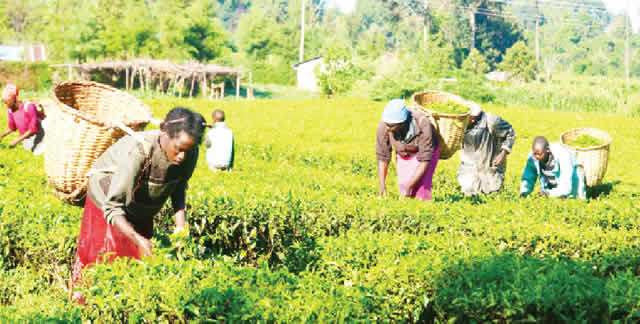January and February 2024 has been marked by the federal government to commerce the second phase of the dry-season farming. The move remains part of the strategy to bolster agricultural productivity and ensure food security.
This initiative also marks a crucial step towards harnessing the untapped potential of arable lands during the dry months, with aim to diversify the nation’s agricultural landscape.
Amidst the challenges posed by climate change and unpredictable weather patterns, the decision to intensify dry-season farming underscores the government’s commitment to mitigating the impact on the agricultural sector.
The targeted hectarages to be put into cultivation under the overall 2023/2024 dry season farming for the various crop are; 123,000 hectares of wheat,150,000 hectares, for rice 30,000 hectares for maize and 20,000 hectares for cassava.
While significant successes have been recorded in the first phase, the national coordinator of the National Agricultural Growth Scheme and Agro Pocket (NAGS-AP), Ishaku Buba at the end of the implementation period of the input distribution exercise in December, 2023 said a total of 118,657 hectares were redeemed out of the 123,000 hectares in Jigawa and Borno States.
Buba said that at the end of the implementation period of the wheat production progrmame, an estimated 472,000 metric tons of wheat product at an average yield of 4 metric tons per hectare would be realised.
However, after the flag-off of the first phase of the dry-season farming in Jigawa and Borno States, in November 2023, the federal government has identified series of challenges that might hamper the success in the second phase.
According to the minister of agriculture and food security, Abubakar Kyari, who highlighted the success in the first phase, said there were reported cases of round-tripping in connivance with agro-dealers and poor validation of farmers’ data in parts of the participating states.
Like the first phase, the second phase of dry-season farming also comes with support package for farmers with access to subsidised improved seed varietie for cultivation across the 36 states and the Federal Capital Territory (FCT).
These initiatives are designed not only to increase yield but also to enhance the overall resilience of the agricultural sector against the backdrop of changing climatic conditions and in response to the federal government state of emergency declaration on food security.
But challenges remain, including the need to overcome the identified issues for effective implementation and the sustainability infrastructural development, and ongoing support for farmers. The success of the second phase of dry-season farming also hinges on a collaborative effort between the government, agricultural stakeholders, and local communities.
The minister has emphasised during the stakeholders engagement in preparation for the second phase, that all necessary machineries and strategies be put in place to address all the observed lapses and infraction from all parties.
He said, “As we look forward, it is imperative for us to tackle some of the challenges observed during the ongoing Wheat Dry Season Farming in the 15 participating states, avoid re-occurence in the second phase for rice, maize and cassava and ensure that they do not impede our agricultural development agenda. These challenges include reported cases of round-tripping in connivance with agro-dealers and poor validation of farmers’ data in parts of the participating states.
“The Federal Ministry of Agriculture and Food Security is fully committed to addressing the issues of round-tripping and poor validation of farmers’ data. We are dedicated to implementing stringent measures in the forthcoming dry/wet season farming for rice, maize, and cassava, to ensure transparent distribution and target genuine farmers. Collaboration with states, local governments, traditional rulers, local farmes’associations, NGOs, and relevant MDAs will be crucial in achieving the desired objectives.
“We seek the support of all stakeholders in the agricultural sector to overcome the challenges and ensure a successful intervention despite time constraints. The second phase of the dry/wet season farming intervention is expected to commence this month, and we are determined to make it a success.
“The ministry is focused on ramping up massive production of staple crops using technology and mechanisation to achieve this goal. We are grateful for the support and guidance of Mr. President as we work towards a more food-secure Nigeria,” Kyari added.
The minister further stated that, “I want to be very clear that we did not sign up to do ‘business as usual’. Indeed, if anything, we are doing business ‘unusual’. As such, we have put in place a variegated system of oversight which, at every level, will identify malfeasance and expose it, accordingly. Overall, we aim to chart a course forward that ensures robust and sustainable production of staple food commodities across board.
“Therefore, beyond the evaluation of the wheat production phase, our collective gaze will be on the future as we lay the groundwork for the second phase of the NAGS-AP dry season farming support provision.”
I am therefore charging you the input producers’ fertilizers, seeds, agro-chemicals to ensure that the products you supply meet with the prescribed set standards in terms of quantity and quality, the input distributors or agro-dealers to sell only certified and approved products sourced from the registered input producers and the farmers in turn to use and apply the entire inputs given to you in line with the best agronomic practices for maximum productivities”.




